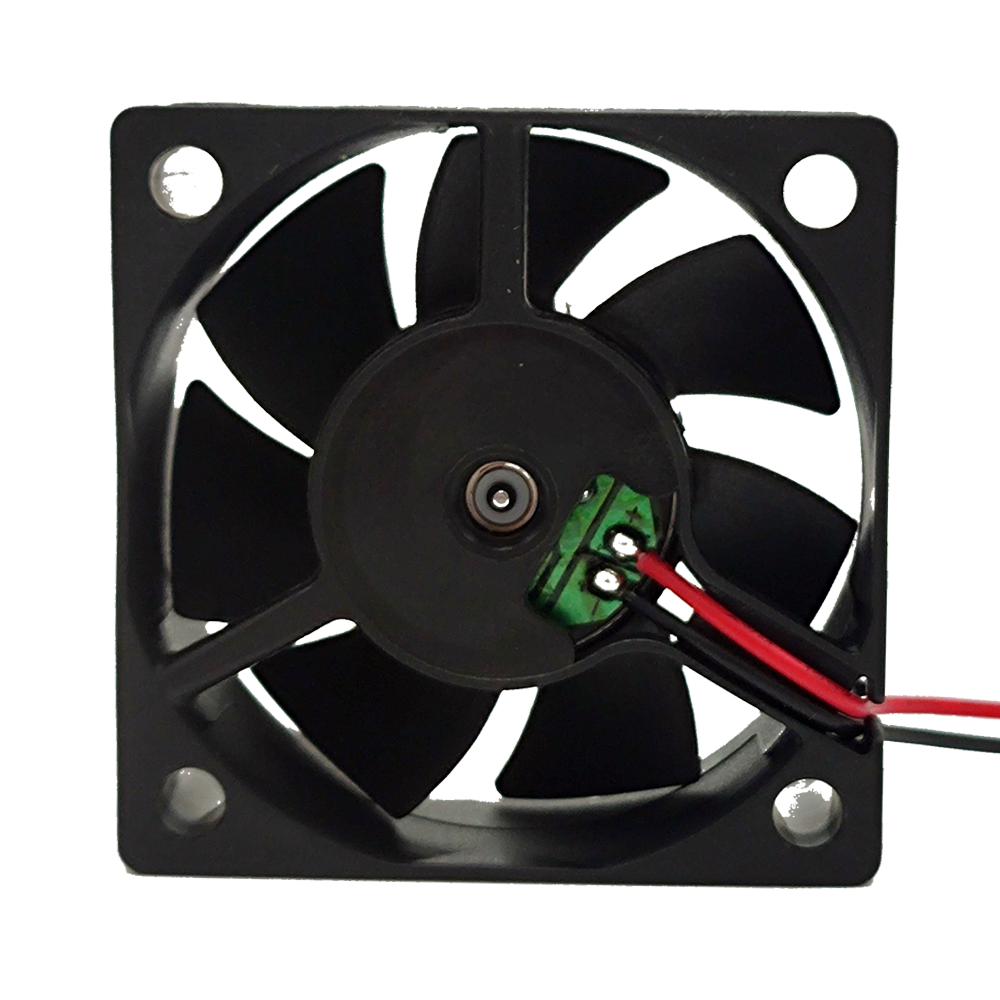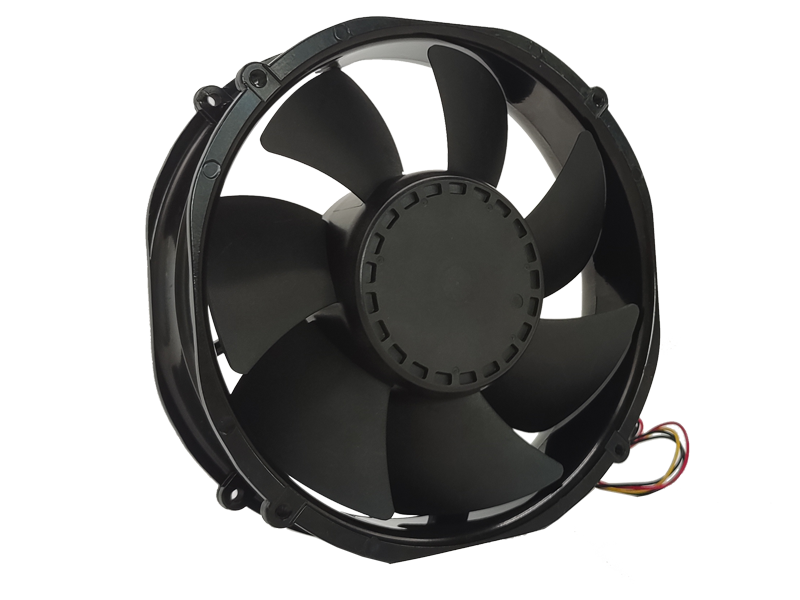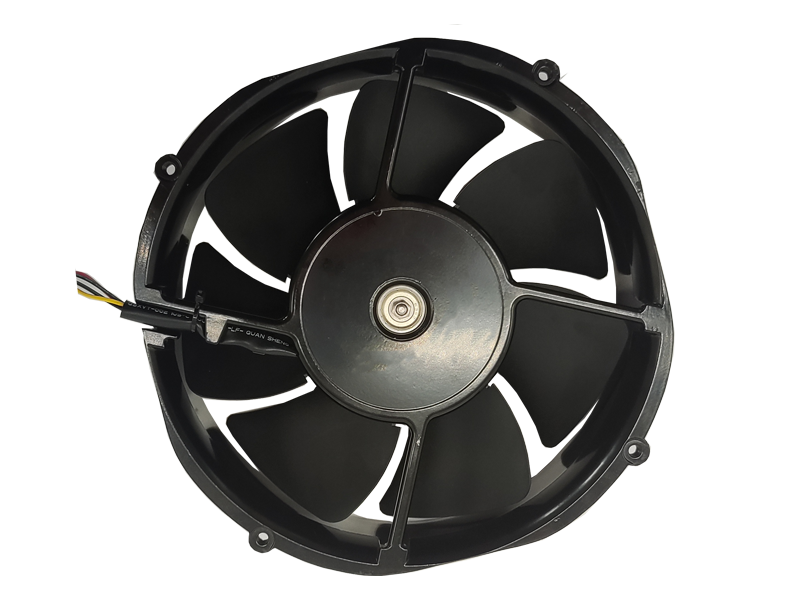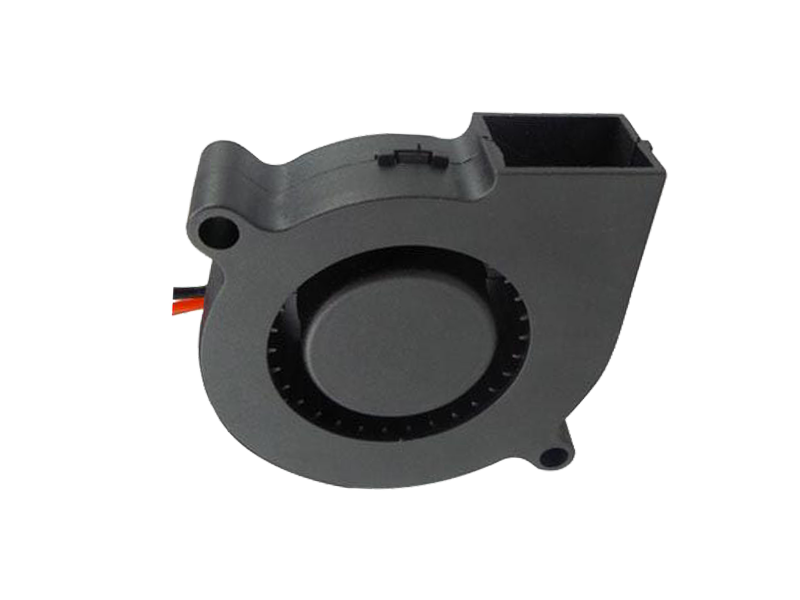In today's industrial landscape, the proper selection of industrial fans is crucial for ensuring optimal performance in various applications, from cooling and ventilation to air filtration and dust control. Industrial fans differ significantly from residential models in terms of size, power, design, and functionality. This article will explore key considerations for selecting industrial fans, the product features to look for, and how to ensure that the fan you choose is suitable for your specific needs.
Understanding the Different Types of Industrial Fans
There are several types of industrial fans available, each designed for different purposes and environments. Understanding these types is essential when selecting the right fan for your application.
Axial Fans: These fans are the most common type used in industrial applications. They move air along the axis of the fan, providing high airflow and relatively low pressure. Axial fans are typically used in cooling applications, ventilation systems, and HVAC installations in factories and warehouses.
Centrifugal Fans: Unlike axial fans, centrifugal fans move air perpendicular to the axis, resulting in higher pressure and lower airflow. These fans are ideal for applications requiring high resistance to airflow, such as dust collection systems, air handling units, and industrial air filtration.
Blower Fans: Blower fans are a type of centrifugal fan but are designed to generate more pressure and are often used in specific applications like furnace cooling, industrial ventilation, or drying systems. They provide a strong, focused airflow and are effective for moving air over longer distances.
Mixed Flow Fans: Mixed-flow fans combine the principles of both axial and centrifugal fans. They provide moderate airflow and pressure, making them versatile for applications like air conditioning, ventilation, and cooling towers in industrial settings.
Key Factors to Consider When Selecting an Industrial Fan
Selecting the right industrial fan requires careful consideration of various factors to ensure maximum efficiency and performance. Here are some critical factors to keep in mind:
Airflow Requirements: Determine the required airflow for your application. This is typically measured in cubic feet per minute (CFM) or cubic meters per hour (m³/h). The size of the space, the heat load, and the specific cooling or ventilation needs will dictate the required airflow.
Static Pressure: Static pressure is the resistance to airflow caused by filters, ducts, and other obstructions. High static pressure is common in ventilation systems with long ductwork or dust collection units. Selecting a fan that can handle the required static pressure is crucial to ensure optimal performance.
Energy Efficiency: Industrial fans can consume large amounts of energy, so energy efficiency is an important consideration. Look for fans that feature energy-efficient motors and aerodynamically designed blades to reduce energy consumption while maintaining effective airflow.
Noise Levels: While noise may not be the most critical factor in all industrial settings, it is important in environments such as laboratories, food processing plants, and healthcare facilities. Choose fans with noise-reducing features, such as vibration dampeners and quieter motor designs, to minimize operational noise.
Maintenance and Durability: Industrial fans are subjected to continuous operation, harsh environments, and potential exposure to dust, moisture, or chemicals. Opt for fans made from durable, corrosion-resistant materials like stainless steel or coated metal, and ensure that maintenance requirements are manageable to reduce downtime.
Ensuring Proper Application of Industrial Fans
Once you have selected the right fan for your application, it’s important to ensure proper installation and use to maximize performance and lifespan. Here are some tips for ensuring that your industrial fan is used effectively:

Correct Fan Sizing: Proper sizing is key to ensuring the fan operates at peak efficiency. Oversized fans can waste energy, while undersized fans may not provide adequate cooling or ventilation. Consult with a fan supplier or HVAC expert to determine the right fan size for your application.
Strategic Placement: The location of the fan within a system is crucial for effective airflow. Fans should be positioned to allow for the smoothest possible air movement, with minimal obstruction or turbulence. Additionally, fans should be placed in areas where they can be easily accessed for maintenance.
Regular Maintenance: Industrial fans require regular maintenance to ensure optimal performance. Check and clean the blades, lubricate the bearings, and inspect the motor and electrical components. Regular maintenance prevents downtime and extends the lifespan of the fan.
Monitoring System Integration: Many modern industrial fans come with sensors and smart control systems that allow for remote monitoring and adjustments. Integrating a monitoring system can help identify potential issues early and ensure that the fan operates within the desired parameters.
Conclusion
Choosing the right industrial fan for your needs is a complex process that requires careful consideration of the fan type, airflow requirements, energy efficiency, and specific application requirements. By understanding the key factors involved in selecting industrial fans, you can make an informed decision that ensures optimal performance and cost-effectiveness. Proper maintenance and placement, along with the use of energy-efficient models, will help your industrial fan deliver reliable and long-lasting performance.
Recommended Products

The main purpose:Car charging station

The main purpose:Car charging station

The main purpose:Electronic refrigerators, water dispensers, direct drinking machines, inverter power supplies
Address:No. 4137, Longgang Avenue (Henggang Section), Henggang Community, Henggang Street, Longgang District, Shenzhen
hotline:13530005572(Chen)15112579390(Li)


Welcome all friends to come for consultation and negotiation.
Copyright 2024 @ Shenzhen Youneng Xinyuan Electronics Co., Ltd.,(industrial fans,industrial blowers,axial fans,cooling fans manufacturer,centrifugal fans,ac cooling fans,dc cooling fans)